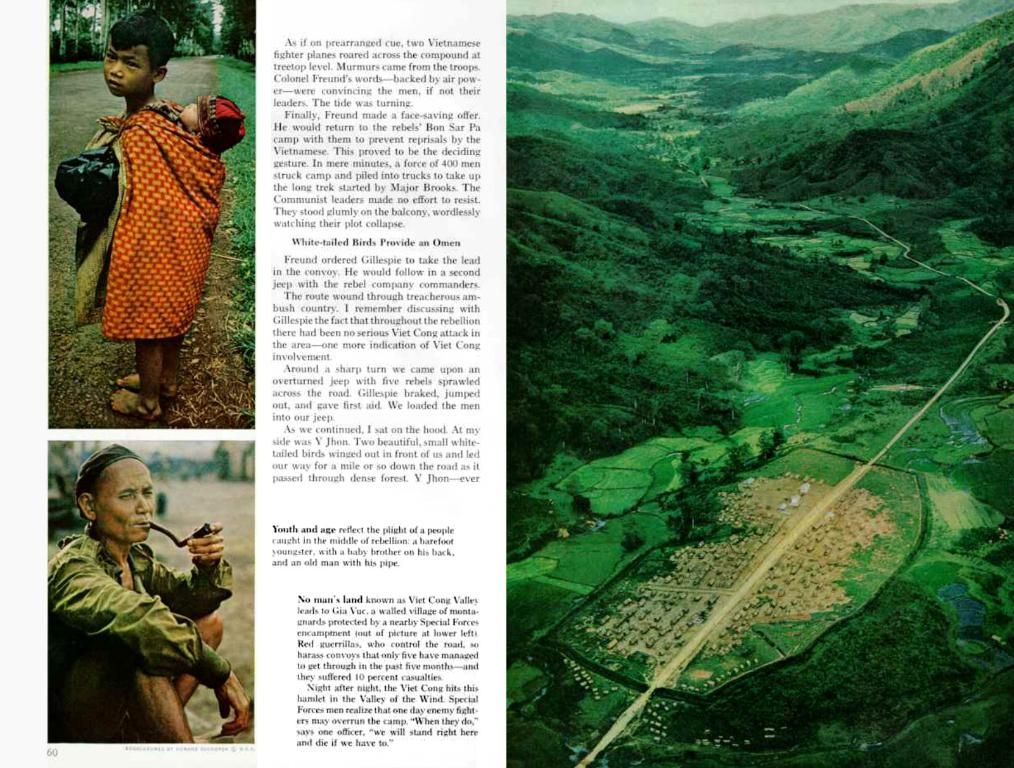Challenging the TPS Termination: A Battle for Haiti and Venezuela
Lawyers Petition Court to Protect Temporary Protected Status for Haitian and Venezuelan Immigrants
In a bold move, three organizations have filed a lawsuit to contest the Trump administration's decision to rescind Temporary Protected Status (TPS) for individuals from Haiti and Venezuela. This legal action was initiated by Haitians Americans United, the Venezuelan Association of Massachusetts, the UNdocuBlack Network, and four individual TPS recipients.
According to NBC News, President Donald Trump had shortened the one-year extension to Temporary Protection Status shortly after assuming office. If enforced, Trump's order could compel many TPS recipients to return to their native countries within six months.
TPS, established by Congress in 1990, offers temporary immigration benefits for individuals hailing from countries experiencing natural disasters, violence, or political instability. This legislation has granted TPS to several nationalities throughout its existence, with protection periods ranging between six and 18 months. Previous administrations have authorized multiple extensions for TPS holders.
Lawyers for Civil Rights, representing the plaintiff organizations, stated that their suit was the first filed on behalf of Haitian migrants. "TPS is a vital lifeline for immigrants who have fled extreme violence, political upheaval, and natural disasters in their home countries," said senior Lawyers for Civil Rights attorney Mirian Albert.
Albert described the administration's move to undermine TPS for Haiti and Venezuela as driven by racial bias and unrelated to the realities faced by these communities. This assertion is bolstered by Trump's past derogatory statements towards Haiti, such as referring to it as a "shithole country."
Dieufort J. Fleurissaint, the executive director of Haitians Americans United, explained that ending TPS early for Haiti would have severe consequences for the affected immigrants, who rely on this status to avoid deportation and maintain legal work authorization. The community expressed concerns over the sudden loss of legal status, the probability of deportation to unstable conditions in Haiti, and difficulties in finding alternative legal paths in the United States.
Carlos Martin Medina, head of the Venezuelan Association of Massachusetts, shared similar concerns, emphasizing that revoking TPS would not only endanger these families but also destabilize the communities they have helped to strengthen.
The Supreme Court has allowed the Trump administration to end TPS for approximately 350,000 Venezuelan nationals, despite a preliminary injunction halting termination due to concerns about potential unconstitutional bias. The termination of TPS for Venezuelans has been implemented, and ongoing legal challenges persist. The situation for Haiti exhibits a similar trend, with the administration's efforts to terminate TPS facing support from the Supreme Court, making it challenging for legal challenges aiming to preserve these protections.
In this legal battle, Lawyers for Civil Rights were the first to file a lawsuit, asserting that the Trump administration's termination of Temporary Protected Status (TPS) for Haiti and Venezuela is driven by racial bias and unrelated to the realities faced by these communities. This lawsuit, filed by Haitians Americans United, the Venezuelan Association of Massachusetts, the UNdocuBlack Network, and four individual TPS recipients, aims to protect civil rights by preserving TPS, a vital lifeline for immigrants escaping extreme violence, political instability, and natural disasters in their home countries.








